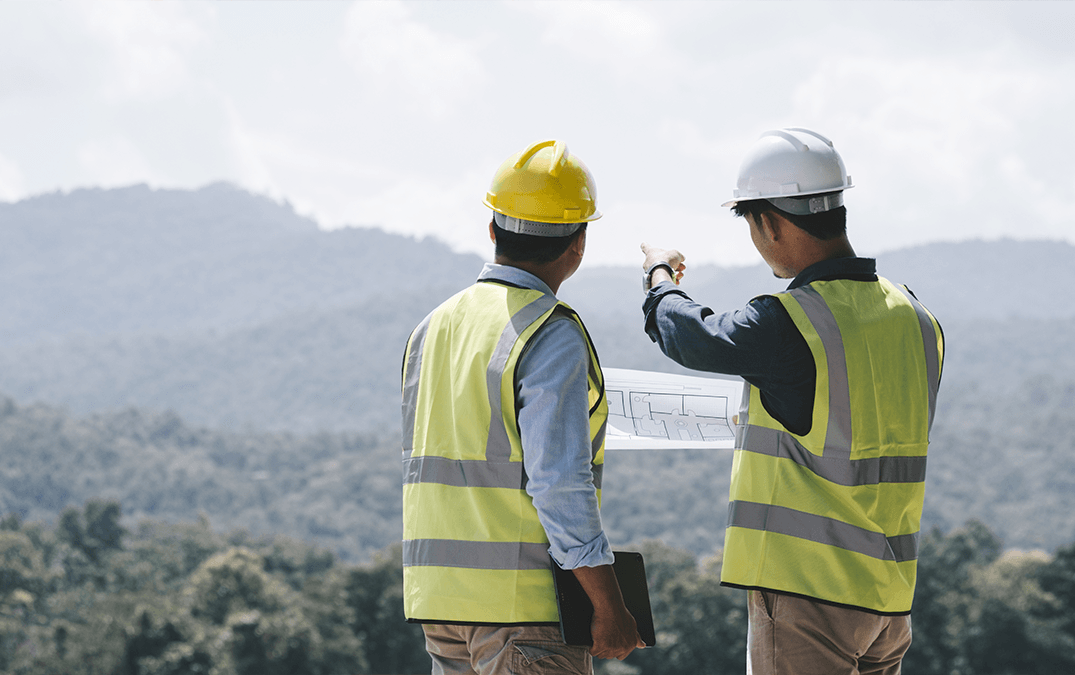Ethics is a hot topic in the construction industry. Reducing accidents and adhering to ethical business practices is key to elevating the perception of the industry.
Regarding environmental issues, a few mistakes or cut corners can often result in undesired consequences. That’s why the American Institute of Constructors (AIC) promotes professionalism and ethics in every aspect of the construction process, including environmental ethics in construction.
Construction managers often find themselves at the forefront of ethical dilemmas as they act as the linchpin between corporate actions and the workers on the ground. Knowing how to keep things above board and using effective planning and communication can go a long way toward establishing more sustainable, environmentally-conscious practices.
Environmental Ethics in Construction: Why Does This Matter?
In the construction world, ethics are the cornerstone of responsible and sustainable practices. Committing to ethics benefits the environment, our communities, and the credibility of the industry as a whole.
Environmental ethics, as they relate to the construction field, have become increasingly important in recent years as we have gained awareness about the impact of human activities on the world.
Construction, while essential for developments in infrastructure, technological progress, and the expanding population, poses several challenges that must be addressed to minimize harm. Let’s review key ethical issues that construction managers need to be aware of.
Habitat Impact
Construction projects often involve clearing land and altering ecosystems which leads to the displacement or destruction of wildlife habitats. Ethical construction practices should prioritize the preservation of natural habitats like wetlands, forests, and grasslands in an effort to curb long-term consequences like the loss of habitats.
Resource Depletion
Construction projects often consume vast amounts of raw materials like timber, concrete, and various metals. Unsustainable consumption of these resources can lead to negative consequences in the built environment.
Ethically-minded construction companies look to source their materials responsibly, use recycled or renewable resources whenever possible, and reduce their overall resource consumption through efficient design and construction methods.
Waste Generation and Disposal
A prominent ethical dilemma in construction is waste generation and the removal of waste. Building projects often generate substantial amounts of waste, including construction debris, packaging materials, and hazardous substances.
Planning out the proper disposal and recycling of construction materials is essential to minimize environmental harm. Waste reduction and recycling practices, as well as new ideas about waste management, can help to negate some of the impacts.
Furthermore, ethical considerations extend to the use of toxic chemicals and pollutants in construction materials and processes. Harmful chemicals from both used materials and waste can leach into the soil and water, posing health risks to both humans and wildlife.
Ethical construction practices involve the use of non-toxic materials and the implementation of pollution control measures.
Energy Consumption
Many construction projects require significant amounts of energy for machinery, heating, and cooling. By embracing energy-efficient building designs and practices, as well as incorporating renewable energy sources into their program, construction companies can reduce their environmental impact across the board.
Environmental Stewardship & Sustainability
Ethical construction practice should include making a lasting commitment to environmental stewardship and long-term sustainability. This step includes considering the environmental impact of a construction project throughout its lifecycle – from planning and design to building to demolition and beyond.
Sustainable construction practices aim to minimize the ecological and carbon footprints, promote biodiversity, and leave a positive legacy for future generations of constructors and clients alike.
What Can Construction Managers Do?
What can construction managers do to ensure that every project follows an ethical standard? There are several key actions you can take to foster a culture of environmental responsibility.
1. Provide education and training. Construction managers should provide ongoing education and training to their teams regarding ethics, regulations, and best practices. This step ensures that all workers are aware of their responsibilities and can make informed decisions in the moment.
2. Perform an Environmental Impact Assessment. Conduct comprehensive assessments for each project to identify potential environmental risks and develop strategies to mitigate them. Make sure to share the results with your team to help them make informed decisions.
3. Focus on resource and waste management. Implement efficient resource management practices to reduce waste and optimize resource use. Encourage recycling, reuse of materials, and responsible sourcing of construction materials. Also, ensure all hazardous materials are handled and disposed of properly.
4. Ensure compliance and certification. Demonstrate your commitment to sustainability by ensuring that construction projects adhere to all necessary regulations. Seek relevant certifications like Leadership in Energy and Environmental Design (LEED) to prove your pledge and encourage others to do the same.
5. Follow through with monitoring and reporting. One of the most important things you can do is create a system to monitor and report on environmental performance long after the construction phase is finished. Ethics don’t rest when the project is done, so maintaining a record of the project’s entire lifecycle can help to inform future builds and look out for anything problematic as it crops up.
Every decision is important to support environmental ethics in construction. Knowing you did the right thing and that your team took steps to minimize any harmful effects will help elevate your company and the entire industry in the long run.
Learn More About How to Support Ethics in Construction
Want to learn more about environmental ethics in construction and how you can keep up with the latest challenges in the industry? Follow us on LinkedIn to access the latest information and resources. We’ll keep you up-to-date on this crucial topic for the industry.




